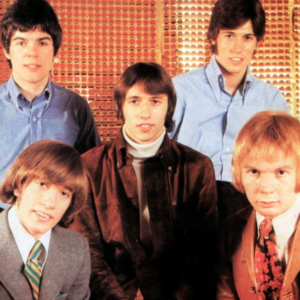George W. Bush, the 43rd President of the United States, holds a unique place in history as the second man to follow in his father’s footsteps and take the nation’s highest office. The only other example came nearly two centuries earlier, when John Quincy Adams succeeded his father, John Adams, in the early 1800s. For Bush, this family legacy added both prestige and pressure to his presidency, as he was constantly measured against the example set by his father, George H. W. Bush, the 41st President.
Born on July 6, 1946, in New Haven, Connecticut, Bush spent much of his early life in Texas, where his family eventually settled. He pursued higher education with determination, earning a degree from Yale University before going on to receive his MBA from Harvard Business School—a rare distinction among U.S. presidents. Before entering politics, Bush pursued careers in the oil industry and later became a part-owner of the Texas Rangers baseball team, an endeavor that gave him visibility and credibility in his home state. His approachable style and growing connections within the Republican Party helped lay the foundation for his future political rise.
In 1994, Bush was elected as the 46th Governor of Texas, defeating incumbent Ann Richards in a closely watched race. As governor, he prioritized education reform, calling for accountability in schools and expanded testing standards. He also advocated for tax cuts and tort reform, positioning himself as a pro-business conservative with an interest in pragmatic solutions. His leadership style—equal parts confident and folksy—resonated with Texans and propelled him into the national spotlight. By the late 1990s, Bush was widely seen as a frontrunner for the Republican presidential nomination.
The 2000 presidential election remains one of the most contested in modern U.S. history. After a razor-thin race against Vice President Al Gore, the outcome hinged on the state of Florida, where ballot irregularities led to weeks of recounts and legal battles. Ultimately, the U.S. Supreme Court ruled to stop the recount, effectively awarding Florida—and the presidency—to Bush. On January 20, 2001, he was inaugurated as the 43rd President, promising to restore dignity to the office and pursue what he called “compassionate conservatism,” blending traditional Republican values with a focus on education, faith-based initiatives, and humanitarian aid.
Just months into his presidency, the September 11, 2001 terrorist attacks reshaped Bush’s legacy and the direction of the nation. His response, including the creation of the Department of Homeland Security and the wars in Afghanistan and Iraq, defined his administration. His 2003 “Mission Accomplished” speech aboard the USS Abraham Lincoln, declaring the end of major combat in Iraq, would later be seen as premature as conflict dragged on for years. Despite the controversy, Bush was re-elected in 2004, defeating Democrat John Kerry in another hard-fought campaign. His second term, however, was marked by mounting criticism over the handling of Hurricane Katrina, continued war casualties, and the financial crisis that erupted in 2008.
Bush left office on January 20, 2009, succeeded by Barack Obama. Since then, he has largely retreated from political life, focusing instead on humanitarian efforts, veterans’ causes, and painting, a personal passion he has shared with the public through exhibitions and published works. Through the George W. Bush Institute, he has continued to promote initiatives in education, global health, and economic opportunity. Though his presidency remains polarizing, with debates still raging over the wars and his domestic policies, George W. Bush’s place in history is undeniable. As the second son to follow his father into the Oval Office, his tenure reflects both the enduring influence of family legacies and the unpredictable challenges of leadership in times of crisis.





